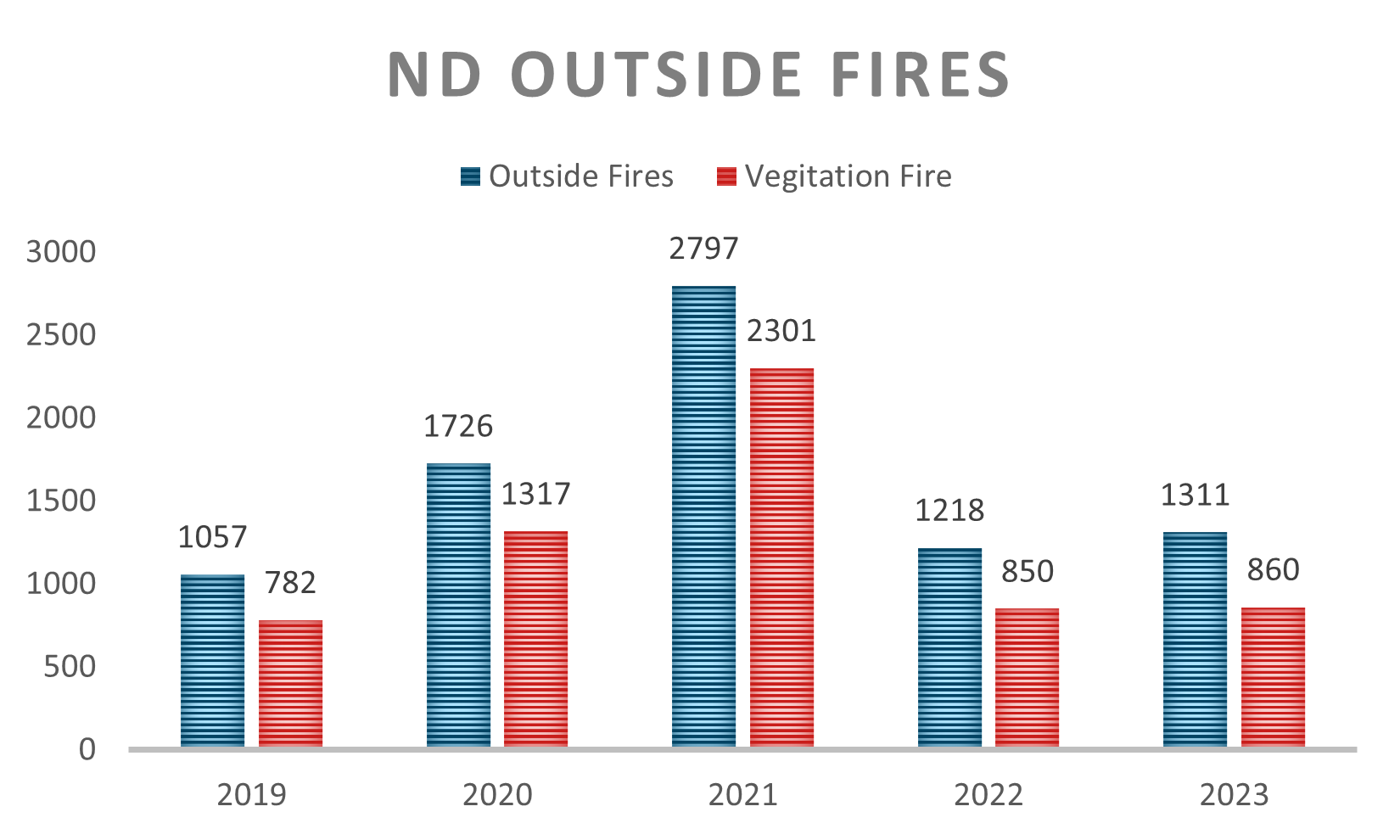
By Marcy Ost, Admin Assistant
It’s that time of year. We’re all bracing for fire season and that makes it a good time to talk about the Wildland-Urban Interface (WUI). WUI is a critical zone of transition between unoccupied land and human development. It represents areas where structures and other human developments meet or intermingle with undeveloped wildland or vegetative fuels.
USFA has a lot of resources from research papers and data to suggested strategies and training, you can find it all here. There’s a pretty comprehensive nine minute video about healthy landscapes that I thought distilled all that information nicely.
The next step is to start educating our communities. This time of year, folks are planning projects and heading out into their yards to get some work done! Consider partnering with your community’s public works departments to create messaging about fire safety that coincides with their wood chip program.
We’ll be posting some tips on Facebook for you to share but here’s some to get you started.
- Space Out Your Plants: When you’re planting trees and bushes, don’t crowd them too close together. Just like people need their personal space, plants do, too! This helps stop fires from spreading if one plant catches fire.
- Choose Fire-Resistant Plants: Some plants are like superheroes when it comes to resisting fire. Some plants actually hold a lot of water, which makes them less likely to catch fire. There’s a list of 25 here.
- Keep Your Yard Clean: Dry leaves and dead branches are like snacks for a fire; they can really help it grow. Make sure you rake up fallen leaves and twigs, and cut away dead parts of plants. A clean yard is a safer yard.
- Make a Safety Zone: Imagine a space around your house where no fire can reach. This zone should be free from any plants or materials that could easily catch fire. You might use gravel or sand in this area or just keep it clear with simple, green grass.
- Water Your Plants: Keep your garden hydrated. A thirsty plant is more likely to catch fire than one that's well-watered. So, don’t forget to water your plants regularly, especially when it’s hot and dry.
Finally, there are two opportunities every month to hear from and exchange ideas with folks working in the community risk reduction space. The first one is the NFPA Kitchen Table. Hosted by the NFPA there are folks from all over the country sharing their programs and picking each other’s brains. On May 8th the speakers will be Capt. Smith & Marshal Vanderhyde from Grand Rapids, Michigan. They will discuss their home safety visits and the “What now?” of a smoke alarm installation program approaching the 10-year mark.
 The second is ND’s Kitchen Table meeting. We meet the 3rd Friday of every month. Most of the time one of the group presents a program from their area or we have an outside speaker. Every so often we just have a bit of a roundtable and catch up on what’s going on around the state.
The second is ND’s Kitchen Table meeting. We meet the 3rd Friday of every month. Most of the time one of the group presents a program from their area or we have an outside speaker. Every so often we just have a bit of a roundtable and catch up on what’s going on around the state.
Let me know if you’re interested in getting on the invite list for either of these get-togethers!
In the News
Minot Fire Dept Granted Funds for New Reserve Firetruck
Bismarck Sound the Alarm Event
Minot Fire Department Launching Helmets for Heroes
West Fargo Fire Department to Honor Fallen Firefighters

